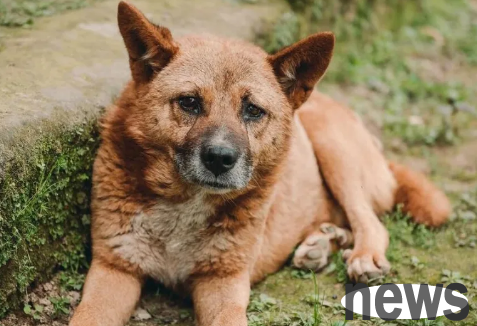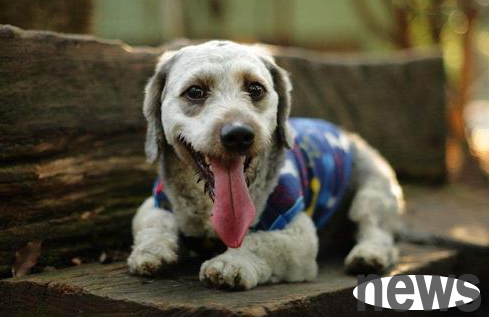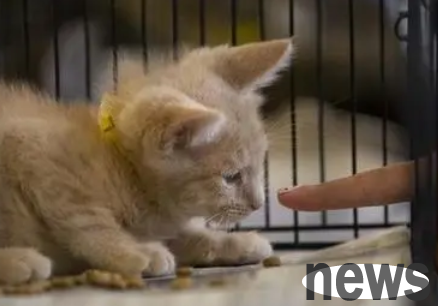When raising dogs, why are there fewer vicious dogs in rural areas?
Something happened to raising a dog again, and everyone probably knows it. This has been on the hot search many times.
There is a video online that the owner did not bring a mouth cover for the dog while walking the dog. After some reason, he suddenly bit a girl's leg on the roadside and tore it hard, causing the little girl to cry and blood flowed from her legs.

Although the dog owner tried his best to protect the girl, and a young man rushed up bravely when he saw it, he picked up the wooden stick and kept beating the black dog, the evil dog just didn't let go.
This matter quickly became a hot topic, which once again caused many netizens to discuss raising dogs. Some of the netizens are very confused:
They are also raising dogs, why are there basically no evil dogs hurting people in rural areas, but it happens occasionally in cities? In fact, there are three main reasons for this. Let’s take a look together. Those who keep dogs at home should take a look!
①The breed of dogs is different.
Everyone should also know that the dogs raised in rural areas are basically Chinese pastoral dogs, which are commonly known as "local dogs". The naming of a native dog that needs to be explained does not mean that this dog is very rustic and ugly, but refers to "born and raised", which means that it is a native dog breed in our country.
Such dogs may not look as good as pet dogs, but they are native dogs in my country. These dog breeds have lived in the countryside for a long time and adapted to the rural environment and lifestyle. They have relatively docile personalities and have a more harmonious relationship with humans.
However, in cities, due to the diverse preferences of people for pets, the breeds of dogs also show diversified characteristics. In addition to the common docile dog breeds such as golden retrievers and Labradors, some large and ferocious dog breeds, such as Dobermans and Pugs, have gradually entered people's vision and even won the love of many people.
But many people ignore that the larger and fierce dog breeds are, the more dangerous it is, because these breeds are still wild in their bones, and they often have strong aggressiveness and territorial awareness. If they are not properly trained and managed, it is easy to cause injuries.
②Differences in dog raising methods.
In cities, due to the limitations of living space, many dog owners can only choose to keep their dogs at home. Prolonged solitude and lack of exercise not only make dogs feel depressed and bored, but may also lead to abnormal behaviors in their behavior.
When the dog owner takes the dog out for a walk, some dogs may show excessive excitement and aggressiveness due to long-term repression, which will lead to injury events.
Can be found in rural areas, dogs are usually free-range. They can run freely on vast fields and interact with other animals and humans. This free lifestyle not only makes dogs feel happy and satisfied, but also helps them build healthy social relationships and behavioral patterns.
Therefore, rural dogs are usually more docile and friendly, and as long as they do not completely anger the other party, they are generally less likely to cause injuries. And many dogs also know that such things cannot be done, which is also one of the basic education of rural local dogs.
③The attitude towards dogs is also different.
In rural areas, dog owners usually have strict attitudes towards dogs. To put it bluntly, if a dog bites a person, it will be boiling oil in the pan.
Because farmers raise dogs mainly to protect the house, they will not spoil their dogs too much. Even if they do not train them properly, the requirements are very strict.
If the dog makes a mistake or is disobedient, the owner will scold or punish the dog to understand his mistake and correct it. This strict management method helps dogs establish correct behavioral patterns and rules awareness and reduce the occurrence of injuries.

And in rural areas, if a dog hurts people, it will basically not live long and will basically be sold. Because this is a taboo for dogs and the most intolerable mistake. The editor knows that rural dogs are very well-educated. If they don’t put the meat on the chopsticks underneath when feeding them, they will not come to grab food.
However, in cities, many people are too doting about dogs and regard them as members of the family, even exceeding their concern for family members.
This excessive doting often causes dogs to lose their sense of boundaries and think that they are the master of the family. When the dog's behavior exceeds the owner's expectations, the dog may become more unscrupulous because the owner is reluctant to scold or punish, and even when they are in a bad mood or are stimulated, it is highly likely that people will be injured.
By comparing the differences between cities and rural areas on dog raising, we can find that the occurrence of vicious dog injuries is not accidental, but is closely related to many factors such as dog breeds, dog raising methods, and attitudes towards dogs.
In order to reduce the number of vicious dog injuries in cities, we need to start from the following aspects:
First, choose the appropriate breed of dogs. When choosing a pet dog, priority should be given to dog breeds that are gentle and easy to train, and avoid breeding large or ferocious dogs that are aggressive and have strong territorial awareness.
Secondly, improve the way of raising dogs. Dog owners should provide the dog with sufficient space for movement and exercise time as much as possible to avoid keeping the dog at home for a long time. At the same time, social training for dogs should be strengthened to enable dogs to establish good interactive relationships with other animals and humans.
Finally, establish a correct attitude towards raising dogs. Dog owners should clarify their responsibilities and obligations and conduct appropriate management and training of the dog. When a dog makes a mistake, appropriate measures should be taken to correct it in a timely manner, rather than excessive pampering or letting go.














